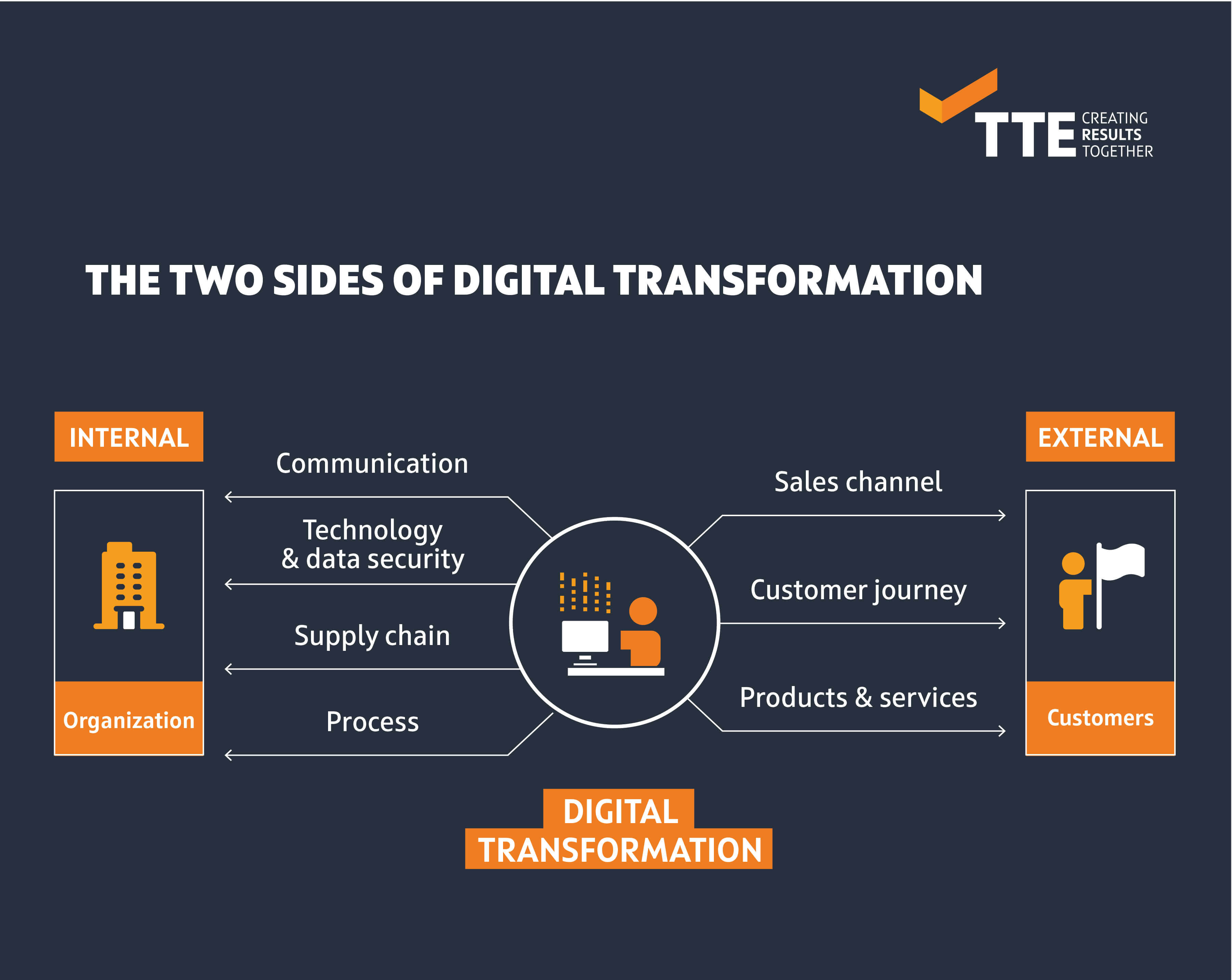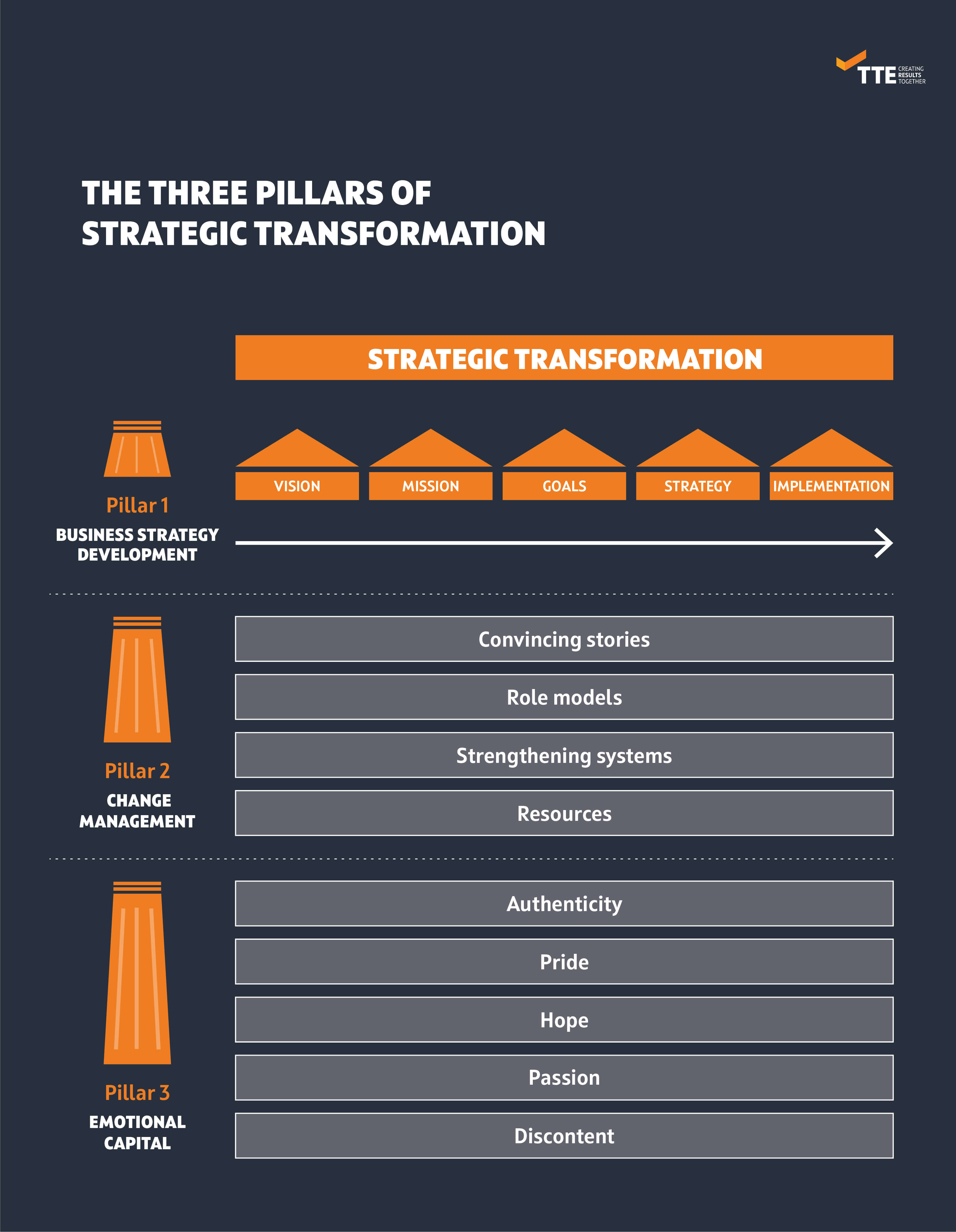Have you ever stumbled across this? LinkedIn, Twitter and Co. are currently sharing a quiz with the question “Who led the digital transformation of your company?”
A: CEO
B: CTO
C: Covid-19
This would be amusing if there wasn’t a sad truth behind it. Digital transformation has been on the to-do list of almost every company in recent years. Nevertheless, only a few have managed to get to the point where they can cushion a crisis like the current one with digital solutions.
To put it bluntly, many companies are not sufficiently digital. C-level executives are currently being made aware of this both at home and abroad. They want to demonstrate decisive action: digitalization must be achieved, and quickly.
According to a recent DMEXCO study, 70% of respondents expect a rapid acceleration of digital transformation as a result of the coronavirus pandemic. However, too much crisis-driven activity often leads to business failure:
- Careless action leads to errors
- Mistakes quickly become expensive; there is often no second chance
- Someone else does it better and takes your market share
The current crisis will keep us busy for longer than just a few weeks. After all, it’s a marathon, not a sprint.
For this reason, clever entrepreneurs rely on long-term, well-thought-out measures despite mounting pressure. They need a goal other than simply surviving the crisis.
Adding Purpose: No Digital Transformation Without Goals
Speaking of quiz questions, here’s another one for you: What do the coronavirus and Uber have in common?
Answer: they’re both disruptors. What Uber was for the taxi market, coronavirus is for almost every industry: an absolute game changer.
The general conditions are changing. The dictum “nothing will ever be the same again” is no longer far removed from actual reality. This is especially true for the digitalization of society and the business world.
- Covid-19 has caused a lot of problems for businesses and consumers. The issue at the top of your digital agenda should be to solve these acute problems that your customers are facing.
- At the same time, the pandemic is also affecting internal processes. The second objective of your digital agenda should therefore be to prepare your company for a largely digital world.
It is true that entrepreneurs must now become active – but they must do so with goals in mind. Digital transformation should always be purpose-driven. Those who do not understand this now are likely to have a hard time in the future and could soon be left behind by their competitors.
The Two Sides of Your Digital Agenda
The pandemic has increased the need to digitalize. Nevertheless, it is your C-Level that sets the individual purpose and develops a corresponding strategy.
Adopting a strategic approach means first checking the demand for your company from two perspectives:

1. Internal: Look at your own company
Analyze your project management, communication and processes. How is the collaboration organized? Which of them are currently still operating in traditional ways, and what are the alternatives? Where can costs be reduced and processes accelerated using digital means?
Examples:
- Collaboration tools: Coronavirus has shown us that we don’t have to be present everywhere and at all times to work together successfully. Slack, Asana, Dropbox and other collaboration tools support us throughout our digital working day, enable paperless working and can even replace a business trip.
- Autonomous production: Modern information and communication technology makes remote work possible even in the manufacturing industry. Intelligent objects control themselves independently through entire value chains, book their processing machines and materials and organize delivery to customers. This can then be monitored by employees from home.
- Automation of the supply chain and operational processes: A major benefit of digital transformation is the automation of processes. In the supply chain, this improves speed and reliability, while simultaneously reducing the workload for employees thanks to fewer touchpoints.
- Integration of data: An optimized data strategy is paramount to ensure successful digital transformation. All data systems must work together and be integrated into the internal processes of the organization.
2. Customer-facing: Look at the market
The next step is to evaluate how digital your company appears to the outside world. What sales channels do you use? Which products and services can you digitalize? How can you proceed in a faster and more integrated way? The crisis is expanding the market for business models, services and products that meet needs immediately irrespective of location. Customers want to stream films now and use services right away. Analog solutions and products tend to just get in the way.
Examples:
- Digital sales: The close connection of customers via interface technologies such as EDI has been practiced for decades. With the latest API technologies, customer relationships can now be mapped digitally in an even more cost-effective and agile manner.
- Personalization in customer care: If you don’t know your customers, you can’t give them what they want. Digital processes help you gain daten-driven insights into your customers’ wishes and intentions and provide them with individual service experiences. This strengthens customer loyalty and secures valuable future business for you even during times of crisis.
- After-sales service: After-sales services are a veritable source of income, especially in the industrial goods sector and other technology-oriented industries. With deep CRM integration, you can understand the business opportunities in the after-sales area even better and thus provide services, such as repair, maintenance and spare parts supply, as tailor-made solutions.
Your Holistic Strategy for Digital Transformation

Now you have a clearer picture of what you want to achieve with your digital agenda. However, purpose-driven does not mean tunnel vision that only focuses on achieving your goals and blocks out everything else (such as employee compliance).
Dealing with complex systems, of which your company is one, requires a rather more holistic approach:
- Digital transformation is successful when it stems from the shared understanding and combined effort of all parties involved.
- Your C-Level is decisive in this respect. It develops a holistic strategy based on the needs of the market. Furthermore, it involves all stakeholders. In the event of disruptive changes, for example, a CEO keeps the mission and vision of the company in mind, while your C-Suite ensures that the technology is ready and that all stakeholders endorse the planned steps.
- None of this is possible without a bit of flair: empathy and courage are necessary to both take the right steps and keep employees on board. This applies all the more in these unprecedented times, which are making us feel more emotionally and economically insecure.
3 Key Takeaways for Business Leaders
- Don’t let Covid-19 take control of your digital agenda. The coronavirus crisis is not a sprint; it’s a marathon! So act accordingly by adopting a long-term perspective.
- Your digital transformation should be purpose-driven. Find your goals and keep them in mind for every action you take.
- Instead of pushing your digital agenda on your own, take a holistic approach that brings all stakeholders on board.
TTE now supports business leaders to implement their digital agenda in a way that incorporates employees, rather than going over their heads: Strategy with the people, driven by the C-Suite. Our experts for digital transformation are here for you. Let’s chat!




